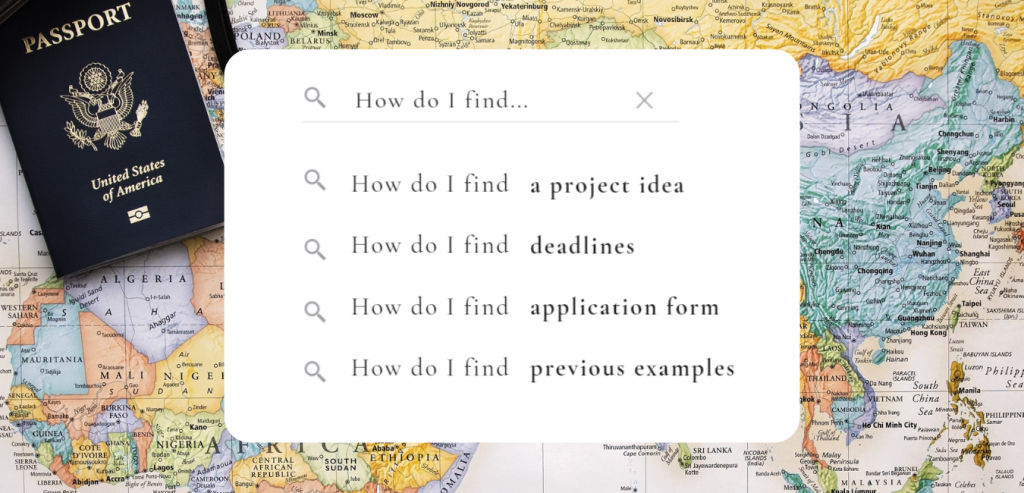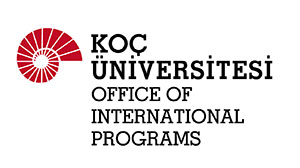
YEP aims to increase Koc University students’ knowledge and their awareness on Erasmus+ Youth Exchange project opportunities, encouraging them by giving guidance for creating and writing new projects, partnering European Universities and gaining international project organization experience. YEP initiative includes 4 main actions:
- Two periodic info sessions to all Koc University students 3 months before the application deadlines.
- Sharing related links, materials, FAQ sheets and tool kits
- Sharing completed and ongoing projects to inspire younger generations and to ensure the continuity of their impacts
- Providing support and guidance for prospective students who would like to apply for project grants.
Please note that YEP aims to help Koc University students in their processes of creation and application of their KA152 Projects. It is not a volunteerism, it is not EVS, it does not affect your prospect Erasmus Semester Exchange applications.
Youth Exchanges are meetings, projects or initiatives that a group of young people collaborates and gathers for a short period of time by implementing a common non-formal learning activity corresponding to the European Youth Goals, such as a series of workshops, outdoor activities, exercises, debates etc. For detailed information, please check out the FAQ sheet.
Young people aged between 13-30 residents in the countries of their sending and receiving organisations. Group leaders for the projects and facilitators involved must be at least 18 years old.
Please click here for more information.
Check out the European Youth Goals and make sure you include at least one of them in your project!
Check out the program guide (page 136-148)
Check Out the previous projects and make sure to select Erasmus+ / KA105 ‘Mobility Projects’
Check out the detailed Youth Exchange Mobility projects for young people information page to find out the answers to all of your questions!
Searching for a partner? Click here.
Check out Erasmus+ Quality Standards!
Do you want to learn about how to write a project? Click here.
23 February at 12:00:00 (midday Brussels time) for projects starting between 1 June and 31 December of the same year
4 October at 12:00:00 (midday Brussels time) for projects starting between 1 January and 31 May of the following year
If additional round is organised, applicants have to submit their applications by 4 May at 12:00:00 (midday Brussels time)
- If I apply to YEP, will I be able to apply to other Exchange programs in the future?
You do not ‘apply’ YEP. YEP is a program to encourage you to create your own KA152 projects. If you create your KA152 project with your project group and partners, however, then apply for KA152 project fund, in that case your fund application does not affect your prospect Erasmus Semester Exchange applications.
- Is YEP volunteerism?
No, YEP is a program to encourage you to create your own KA152 projects. KA152 projects, however, are not volunteerism. The KA152 program aims to create alternative learning experiences with short-term youth mobility projects. Please get further information on our web page, under “What is an Erasmus+ KA1 Youth Exchange Project?” category.
- Is YEP EVS?
No, YEP is a program to encourage you to create your own KA152 projects. KA152 projects, however, are not EVS.
- What is ‘Youth Exchange’?
Youth Exchanges are meetings of groups of young people from at least two different countries who gather for a short period to implement jointly a non-formal learning programme (a mix of workshops, exercises, debates, role-plays, simulations, outdoor activities, etc.) on a topic of their interest, seeking inspiration from the European Youth Goals. The learning period comprises preparation phase before as well as evaluation and follow-up after the exchange.
- What kind of activities are not eligible for ‘Youth Exchange’ projects?
The following activities are not eligible for grants under Youth Exchanges: academic study trips; exchange activities that aim to make financial profit; exchange activities that can be considered as tourism; festivals; holiday travel; performance tours, statutory meetings, training courses by adults for young people.”
For more information, please visit: https://ec.europa.eu/programmes/erasmus-plus/programme-guide/part-b/key-action-1/mobility-projects-young-people-youth-exchanges_en
- What does the Youth Exchanges aim for?
Youth Exchanges aim to:
-
- foster intercultural dialogue and learning and feeling of being European;
- develop skills and attitudes of young people;
- strengthen European values and breaking down prejudices and stereotypes;
- raise awareness about socially relevant topics and thus stimulate engagement in society and active participation.
- What is a ‘Youth Exchange project’?
“A project is implemented by at least two organisations. One of the organisations also takes the role of coordinator and applies for the whole project on behalf of the partnership.
- Who can apply?
Any eligible participating organisation or group established in a Programme Country can be the applicant. This organisation applies on behalf of all participating organisations involved in the project. Minimum two participating organisations (at least one sending and at least one receiving organisation) from different countries must be involved.
A participating organisation can be:
-
- a non-profit organisation, association, NGO; European Youth NGO; a public body at local, regional, national level; a social enterprise; a profit-making body active in Corporate Social Responsibility;
- an informal group of young people.”
-
Duration
Duration of the projects can be from 3 to 24 months. However, duration of the activities included in the project can vary from 5 to 21 days, excluding travel days.
-
What are the other Criteria?
- Eligible participants: Young people aged between 13 and 30 residents in the countries of their sending and receiving organisations. Group leaders and facilitators involved must be at least 18 years old.
- Minimum two groups of young people from two different countries.
- Each group must have at least one group leader.
- Maximum one facilitator per activity.
-
Where to apply?
To the National Agency of the country in which the applicant organisation is established.
-
When to apply?
Applicants have to submit their grant applications by the following dates:
5 October at 12:00:00 (midday Brussels time) for projects starting between 1 January and 31 May of the following year
- What are the 4 stages of the project?
A project consists of four stages: planning, preparation, implementation and follow-up. Participating organisations and young people involved in the activities should take an active role in all those stages enhancing thus their learning experience. For detailed information, please visit: https://ec.europa.eu/programmes/erasmus-plus/programme-guide/part-b/key-action-1/mobility-projects-young-people-youth-exchanges_en
- What are the Selection Criteria?
Projects will be assessed against the following criteria. To be considered for funding, proposals must score at least 60 points. Furthermore, they must score at least half of the maximum score points in each of the categories of award criteria mentioned below.
-
- Relevance, rationale and impact (maximum score 30 points)
- Quality of project design (maximum score 40 points)
- Quality of project management (maximum score 30 points)
For detailed information, please visit: https://ec.europa.eu/programmes/erasmus-plus/programme-guide/part-b/key-action-1/mobility-projects-young-people-youth-exchanges_en
- Project Checklist:
- Check if your project’s aims and objectives are related to the Erasmus+ KA1 Action aims and objectives, and the European Youth Goals.
- Check if you have at least a project partner.
- Check if your project has 4 stages and all participants are included in the decision-making process of all 4 parts of the project.
- Check if your project is socially inclusive and diverse.
- Check if your project is environmentally sustainable.
- Check if your project corresponds to the Erasmus Youth Quality Standards.
